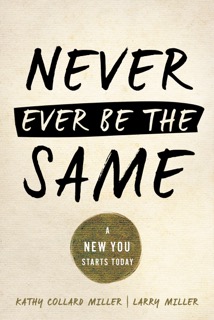Waiting Well
Wise and winsome Nali Hilderman calls Christian singles to seek and live for the Lord, but her words have often spoken to my own heart as a married woman. In this UPGRADE post for  Single Christians, she once again calls all of us to consider life from a biblical perspective.
Single Christians, she once again calls all of us to consider life from a biblical perspective.
"Like most people," Nali says, "I really do not like to wait—I don’t like long lines, I don’t like sitting at the airport for a flight or in traffic. I get antsy and oftentimes anxious for things I cannot control."
I (Dawn) DO hate to wait. Waiting is "a waste of time," I say—except when God has us in a waiting pattern for His purposes. Nali reminds us of some lessons the Lord might teach us in this schoolroom of waiting.
Nali continues . . .
I’ll be honest and say I have an especially hard time waiting on God.
When I wait for other things, I can at least cognitively understand the situation: there are 10 people ahead of me and as one leaves, then I move up.
There are 25 minutes until my flight takes off, so I can manage that.
But with God, it often seems like those cognitive “markers” are elusive, and waiting proves angstful and difficult. This is especially true if, like me, we are waiting on God for a relationship, especially one that will lead to marriage.
However, God has not left us in the dark regarding this; and I want to offer us some advice on how to WAIT WELL—to give some “cognitive markers” to hang on to in the midst of our waiting.
1. Remember You are in Good Company.
Not only are lots of other people waiting on God right now, but the scriptures are filled with countless people who had to wait on God.
Most of the heroes of the faith—the patriarchs, the kings, the Jewish nation—all had to wait years for God to fulfill the promises He had given them.
Read their stories and be reminded of how they waited (some well, and others, not so well). Visit Hebrews 11 for an overview of many of them, and note especially that some died before they received God’s Promise, yet they did not waiver in their faith that God would provide. What faith!
2. Remember It’s about the Journey, Not the Destination.
More than anything, God desires relationship with us.
Often God's provisions and withholdings are meant to draw us into deeper fellowship with Him.
I once went through a whirlwind relationship and was convinced God had finally provided a husband for me. I was left in tatters after the relationship ended.
Only through a deep wrestling with God did I discover Him saying, "
This was never about the guy; this was about my relationship with you!”
That led me to an intimacy with God I never knew was possible. Romans 8 says God works in all things. Why? So we may know Him and be conformed into the image of His Son (vv. 28-29).
3. Get busy!
Follow the examples of those in the Bible who waited on God. Though there are some negative examples, most carried on while waiting, and God used that time for what was to come.
David was a young man when he was anointed King of Israel, but it was a few decades before that promise was fulfilled. In that time, he fought lions and bears, killed Goliath, served another king—who taught him what he was not to do—and walked with God (I Samuel 16-24; 2 Samuel 1-2).
4. Trust God and His Timing.
The hardest part about waiting is feeling out of control in our circumstances, yet time and time again scripture provides examples of how God is in the most minute details to get His children right where He wants them in order to provide.
My favorite story of this is the children of Israel in Exodus. They had left slavery in Egypt under miraculous means, only to begin wandering in the desert. The Bible says God did not lead them through the land of the Philistines, though it was shorter, but took them to the Red Sea and had them camp there!
We know what happened next. The Egyptian army came to kill them, yet God miraculously provided AGAIN for their rescue.
Notice the key point:
God took them to the exact place where He would prove his power and protection, even though it seemed to make no sense to the Israelites (Exodus 13:17-18).
Dear friends, are you in a season of waiting on God for a relationship or for anything else? Which of these four markers is most challenging for you? How can you actively pursue one of these this week as you learn to Wait Well?
Nali Hilderman is a professor of American history and political science at San Diego Christian  College. She also is currently the Acting Chair for the Leadership and Justice Department. She writes on the connection between Christianity and the public square, both historically and in the present.
College. She also is currently the Acting Chair for the Leadership and Justice Department. She writes on the connection between Christianity and the public square, both historically and in the present.
Graphic adapted, courtesy of AD Images, Pixabay.
 Post a Comment → Posted on
Post a Comment → Posted on  Tuesday, March 13, 2018 at 7:40AM
Tuesday, March 13, 2018 at 7:40AM  Faith,
Faith,  God's Provision,
God's Provision,  God's Timing,
God's Timing,  Nali Hilderman,
Nali Hilderman,  Patience,
Patience,  Singleness,
Singleness,  Singles,
Singles,  Trusting God,
Trusting God,  Upgrade with Dawn,
Upgrade with Dawn,  Waiting,
Waiting,  Waiting On God Upgrade Your Life
Waiting On God Upgrade Your Life  Biblical Thinking,
Biblical Thinking,  Perspective,
Perspective,  Single Christians
Single Christians 













